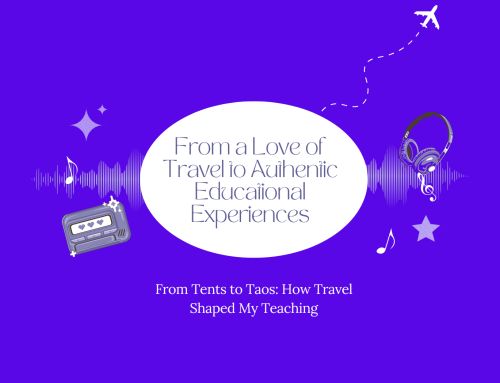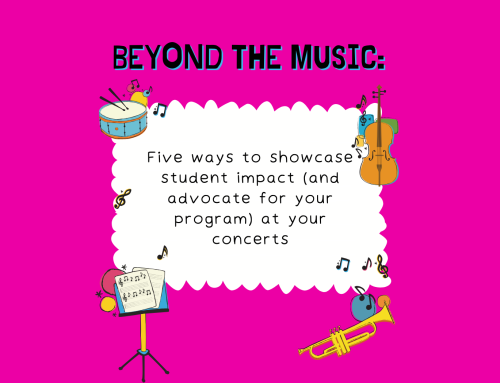There was a subtle but noticeable change when I received my PhD. I was not treated the same. I noticed parent emails were slightly more forgiving, and my opinion seemed to be more valuable than before those three letters followed my name. I noticed a similar change with my friends and colleagues from my PhD program. We were no longer students, we were experts (or, at least we were supposed to be).
Table of Contents
“What do you do?”
Once I started attending and presenting at multiple conferences each year, I also noticed this delicate dance that happens when academics get together. People want to know who you are and, more importantly, what you do. Why does this matter? Well, it can lead to future collaborations, incite conversations, or at its most self-serving purpose, lead us down a path of how we can benefit each other to further our careers.
Lately, I’ve taken note of how those around me introduce themselves. We often start with our highest title, and then work our way down. “I am Dr. so and so, and I run the program of _____.” or “I’m so and so and I am a PhD student at xyz university studying the intersection of ___s and ___” I always feel awkward in these situations. I feel uncomfortable chiming in—“I’m Sarah, and I’m a public school teacher.” On more than one occasion, I’ve heard the response “Right. But, what brings you here?” (My interpretation of this question is: “no run-of-the-mill public school teacher would come to a research conference, so you must do something else.”)
The last time I was greeted with the response, “yes, but what do you do?”, it really made me pause and think about hierarchy in education. From my experience, I am speaking about music education but this could be expanded to education in general. Who are the “heavy hitters” in the field of education and what do they bring to the table? And, where is democracy in education when degrees and letters far outweigh experience in doing the very thing we spend time researching?
“I work in medicine.”
A good friend of mine made me re-think how I share my work with others that I meet. Her name is Val. But, if you met her, you would probably not find that out in the first conversation. I’ve been in situations where others have greeted her and asked her the golden question, “What do you do?” She usually responds with a quick, “I work in medicine,” and leaves it at that. If you press in, she might tell you about the fact that she works with babies. But, more often than not, she will spend the conversation trying to get to know YOU and know what makes you special.
One of the first times I visited Val’s house, I realized she didn’t simply work in medicine. She was a neonatology fellow at one of the most competitive programs in the country. There were awards covering her wall and textbooks stacked high on her desk. Val was and is one of the most successful doctors in our area. But, her humility could lead you to believe otherwise. I’ve also heard her talk with others who “work in medicine,” specifically friends of ours who are NICU nurses. She commends them, stating that they are the ones doing the really tough stuff, caring for babies in such impressive ways.
When Val speaks to people she just meets, they do not feel ostracized because of her level of education or level of success. They feel welcomed and encouraged to enter a conversation in which each person has social capital and can contribute.
Who are the music makers? And, who are the dreamers of dreams?
I steal this quote from Willy Wonka and the Chocolate Factory. It’s become one of my favorites. I feel that the business of music education is the business of music-making and dreaming dreams. And, I am becoming increasingly convinced that creating democratic spaces in education is the only way forward.
Music education has existed within contexts that promote dictator-like/top-down environments in which the person with the most education, or the most letters behind their name gets to determine what music is valuable and how that music should be experienced. I’ve heard more than one director throw up their hands after an exhausting day of teaching and say, “Do these students even realize who I AM?” Meaning, given our experience and accolades, we could easily do anything or teach anyone but have instead decided to invest in this particular group of students who should be grateful to be in our presence, learning from us.
While I realize it’s not that simple, and it’s hard to feel disrespected (I do teach adolescents), I think we need to have some honest conversations about how we level the playing field in music education. In those conversations, we need to address that few voices with social capital by way of education are given the opportunities to determine the way ahead for our field. This top-down mentality can suppress student voice and continue to assert the idea that the ones who matter most are the ones guiding the ship, not the passengers.
So, what?
What can be done? I think we need to honestly look at two ways in which we promote this mentality. First, we need to look at ourselves. How do we approach those with whom we’ve been entrusted to teach and nurture. Do we humbly come to our students as co-collaborators, valuing their opinions and preferences? Or, do we approach them as the one with the knowledge, asserting that we are in our position because of what we have done and how hard we have worked?
As with most of my blog posts, I tend to choose topics that I struggle with personally. I realize that I have ostracized many students in my teaching career by caring more about my reputation than about meeting them halfway. And, I still struggle to remember that my identity is not in my name or the line items on my CV.
Also, can we agree that earning a doctorate is not the only test for whether one has achieved a level of expertise in their field? I recently saw a job posting for a professor of popular music studies and a doctoral degree was on the list of requirements. Why? If that professor is expected to teach courses that are largely based on hands-on experiences in the music industry, why would we expect them to have earned a PhD?
Say my name, say my name
Instead of treating introductions like a chance to rattle off the main points of our resume, let’s treat them as a chance to connect with another human being. Let the person come before the name. At our core, we are all on a journey of learning and applying, no matter how many years we’ve been at it. And, the only way to teach people well is to know people. The next time I’m at a conference, I look forward to telling others that “I work in music education” and spending more time listening than talking.




Leave A Comment